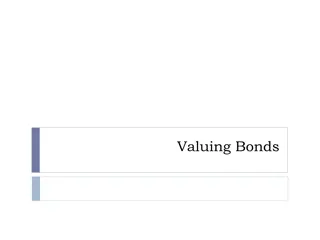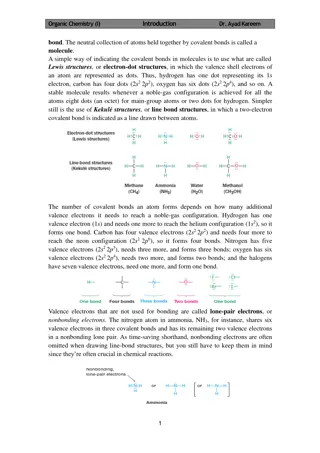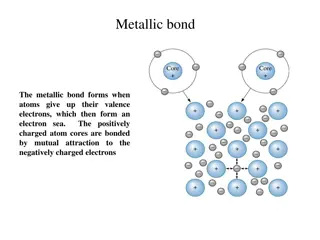Floatation of Securities and Bonds
Floatation of securities such as shares, debentures, loans, and bonds explained in detail. Learn about the different types of securities and their roles in financing businesses and government projects.
Download Presentation

Please find below an Image/Link to download the presentation.
The content on the website is provided AS IS for your information and personal use only. It may not be sold, licensed, or shared on other websites without obtaining consent from the author.If you encounter any issues during the download, it is possible that the publisher has removed the file from their server.
You are allowed to download the files provided on this website for personal or commercial use, subject to the condition that they are used lawfully. All files are the property of their respective owners.
The content on the website is provided AS IS for your information and personal use only. It may not be sold, licensed, or shared on other websites without obtaining consent from the author.
E N D
Presentation Transcript
FLOATATION OF SECURITIES SHARES:-
FLOATATION OF SECURITIES Share is a fixed identifiable unit of capital that represents a member s stake in a company s share capital. It confers rights and obligations on a holder. It is a transferable property. It is internally generated fund.
FLOATATION OF SECURITIES Debenture:- Debenture is an external source of capital for a company s business. It is a legal document which states the terms on which a company had borrowed money acknowledgement of debt. It is a i.e a written
FLOATATION OF SECURITIES loan lenders company to be repaid at a later date while bearing interest at an agreed rate. It is usually secured on the company s property though it need not always be so as there are unsecured debentures. agreement provide by money which the to a
FLOATATION OF SECURITIES BOND:- A Bond also known as Gilt is a long term promissory note. It is a loan sourced by the borrower from a number of people and/or business
FLOATATION OF SECURITIES /institutions for a period and at a fixed rate of interest. The interest is paid at periodic intervals while sums are paid at stated maturity dates. the principal
FLOATATION OF SECURITIES Bonds are fixed interest securities traded on the Exchange like Debentures, Shares, etc. The government raises money to finance its spending and projects by issuing/auctioning bonds. Nigerian Stock
FLOATATION OF SECURITIES There bonds namely; Registered Bonds and Bearer or Coupon Bonds. Registered Bonds registration of the owner s name in the company s books. Bearer or Coupon Bonds are not are two classification of require the
FLOATATION OF SECURITIES recorded in the name of the owner and the title to such bonds passes with delivery. The issue of bearer bonds eliminates recording bond ownership changes as well as preparing and mailing periodic interest payments. It has the disadvantage of lack of the need for
FLOATATION OF SECURITIES protection to the bond holder which the registered provide in the event of a loss. By the provisions of S.222 of ISA, the Federal Government, Federal Government Agencies, State bonds
FLOATATION OF SECURITIES Government and their Agencies, the Federal Capital Territory and its Agencies, Local Government and any company which owned by the Federal, State, Federal Capital Territory Government can issue bonds. is wholly and Local
FLOATATION OF SECURITIES The Federal Government bonds are usually issued and managed by CBN on behalf of government. They are the most attractive among the stocks because of ease of convertibility to cash. the federal
FLOATATION OF SECURITIES Bonds are traded on the capital market which involves long term debt or equity obligations. Before a bond is floated Exchange and traded on in the capital market, approval must be given by SEC as the regulatory on the Stock
FLOATATION OF SECURITIES Commission. S. 224 provides the conditions to be fulfilled before a bond can be issued. It must be pointed out that the fund raised through managed by a corporate trustee registered by the Commission. See bond issue is
FLOATATION OF SECURITIES S 224(5). Usually, when bonds are issued, a sinking fund is required to be established by SEC. Sinking fund is a provision aimed at facilitating orderly retirement of a bond. The sinking fund is fully funded from the consolidated revenue fund account
FLOATATION OF SECURITIES of the issuer. See S. 224(3)(a)(i) of ISA. The details of the bond shall be gazetted or published in any other official document by the issuer. Upon issuance of bond, the issuer must keep a register where the bond holders and particulars of the bond will be entered and appoint a
FLOATATION OF SECURITIES Registrar. See S. 227 of ISA. An issuing house is appointed by the issuer to raise the loan through bonds. S. 228. A bond holder is registered in the register and is given a bond certificate. See SS. 230-232. Bonds are transferable and
FLOATATION OF SECURITIES there can be lien on bonds SS. 233 235. The register can be closed for 21 days to compute interest to be paid to bond holders- S. 236.
FLOATATION OF SECURITIES REQUIREMENTS FOR FLOATATION OF GOVERNMENT BONDS IN THE CAPITAL MARKET: The amount to outstanding loan should not be more than 50% of the capital revenue of the state in the be raised or
FLOATATION OF SECURITIES preceding year; The Bond must be registered with the Securities Commission; The date of redemption of the bond shall not exceed 25 years from the date of the issuance of the bond; and Exchange
FLOATATION OF SECURITIES A separate sinking fund shall be established for each loan; Bond certificate should be issued to the bondholders within 2 months; and A legislation/resolution of the State Assembly must be issued to the
FLOATATION OF SECURITIES office of the Accountant-General of the Federation. PROCEDURE FOR FLOATATION OF BONDS: Application for registration of the Bond by the Securities & Exchange Commission. approval and
FLOATATION OF SECURITIES The application to SEC will be accompanied by documents; Copy of the law or resolution authorising the bond; Copy of the rating report by an accredited rating agency registered the following
FLOATATION OF SECURITIES by SEC; and Irrevocable issued by the State Accountant- General to the federal Accountant- General to deduct from source the state statutory allocation to redeem the bond. letter of authority
FLOATATION OF SECURITIES Appointment of Corporate Trustee registered by SEC. Appointment of Issuing House. Appointment of Registrar that is registered with SEC. Publication of the bond in the gazette or other official documents.
FLOATATION OF SECURITIES Registration of bond holders in the bond register. Issuance of bond certificate to bond holders. GLOBAL DEPOSITORY (GDR):- RECEIPT
FLOATATION OF SECURITIES Global Depository Receipt (GDR) otherwise known as Depository Receipt (DR) is a type of direct investment by a foreigner whereby, the foreigner buys the shares of a foreign company country and in currency and dividend when paid is in his his home country s
FLOATATION OF SECURITIES also paid in his local currency. In the case of direct envisaged here, local investors will augment the capital of the bank with funds from foreign investors. The foreign investors may not be in controlling position and may investment as
FLOATATION OF SECURITIES therefore competence of local managers. A good example is investment in the equities of UBA PLC sometime ago through GDR. This is made possible as a result of globalisation and liberalisation. just rely on the
FLOATATION OF SECURITIES Shares and debentures of a listed public company are floated on the Stock Exchange and are traded on the floor of the Market. Bonds approved by SEC are also traded on the capital market.
FLOATATION OF SECURITIES Shares and debentures are offered to the public through Direct offer, Offer for Sale and Public Placing. DIRECT OFFER PUBLIC/PROSPECTUS ISSUE. In this type of issue, the company offers its securities to the general TO THE
FLOATATION OF SECURITIES public through an issuing house by means of a prospectus. The issuing house acts as an agent and not an Underwriter. Underwriting is a financial means of removing the subscription so that, the whole risk of under
FLOATATION OF SECURITIES of the finance to be raised, will be underwritten by an underwriter to the extent that he will buy at the issue price any securities which are not subscribed for by the investing public. OFFER FOR SALE
FLOATATION OF SECURITIES By company sells the whole shares or debentures to an issuing house which will invite the public to buy from it usually at a higher price. The risk of under subscription or this method, the issuing
FLOATATION OF SECURITIES failure of the issue is borne by the issuing house which usually will underwrite the issue. PLACING It is an arrangement whereby the shares are not offered to the
FLOATATION OF SECURITIES public but instead, the sponsoring market maker arranges for most of the issue to be bought by a small number of investors usually investors like Pension Funds and Insurance Companies. (issuing house) institutional
FLOATATION OF SECURITIES ROLE OF SOLICITOR IN CAPITAL MARKET: Advice an investor who wants to invest in the capital market the best securities to invest on. Also ensure that the issuer complies with the legal requirement before
FLOATATION OF SECURITIES offering the securities to the public. If the security to be traded on is a Bond, advice the trustees on steps to take. DISTINCTION BETWEEN INVESTING IN SHARE AND INVESTMENT SCHEME COLLECTIVE
FLOATATION OF SECURITIES Shares are transferable while Units must be bought by the manager upon request by a holder. Share holders take part in the management of the company while unit holders do not.
FLOATATION OF SECURITIES A share holders shares are identifiable while the units are not as they are in a pool. The company is managed by the board of directors while the unit trust is managed by the Managers.
FLOATATION OF SECURITIES Upon revocation of a Unit Scheme, the manager must buy all the units. This is not so with the directors of a company when a company wound up. A share holder upon dissolution of the company can share in the
FLOATATION OF SECURITIES residual assets of the company while a unit holder cannot. Memorandum and Articles bind shareholders while a Trust Deed binds Unit holders.























